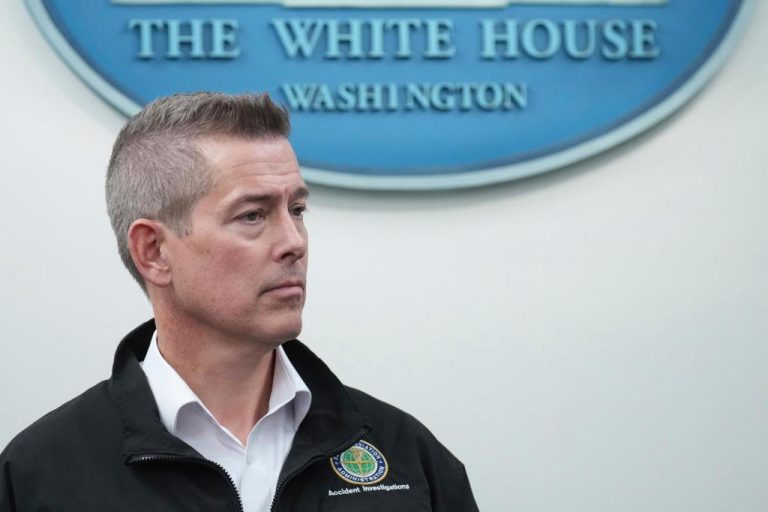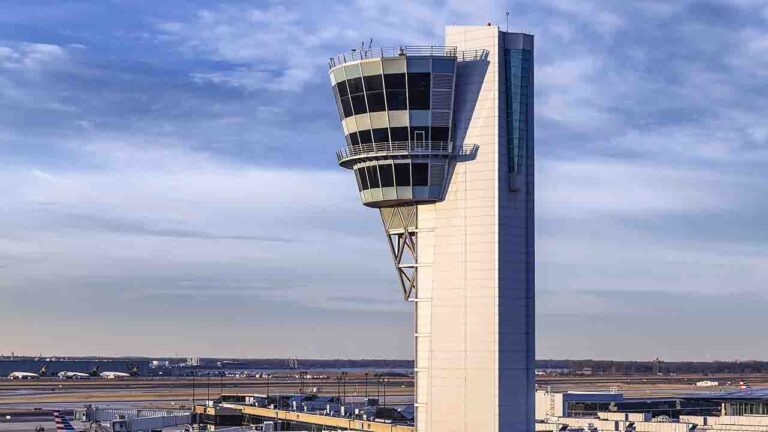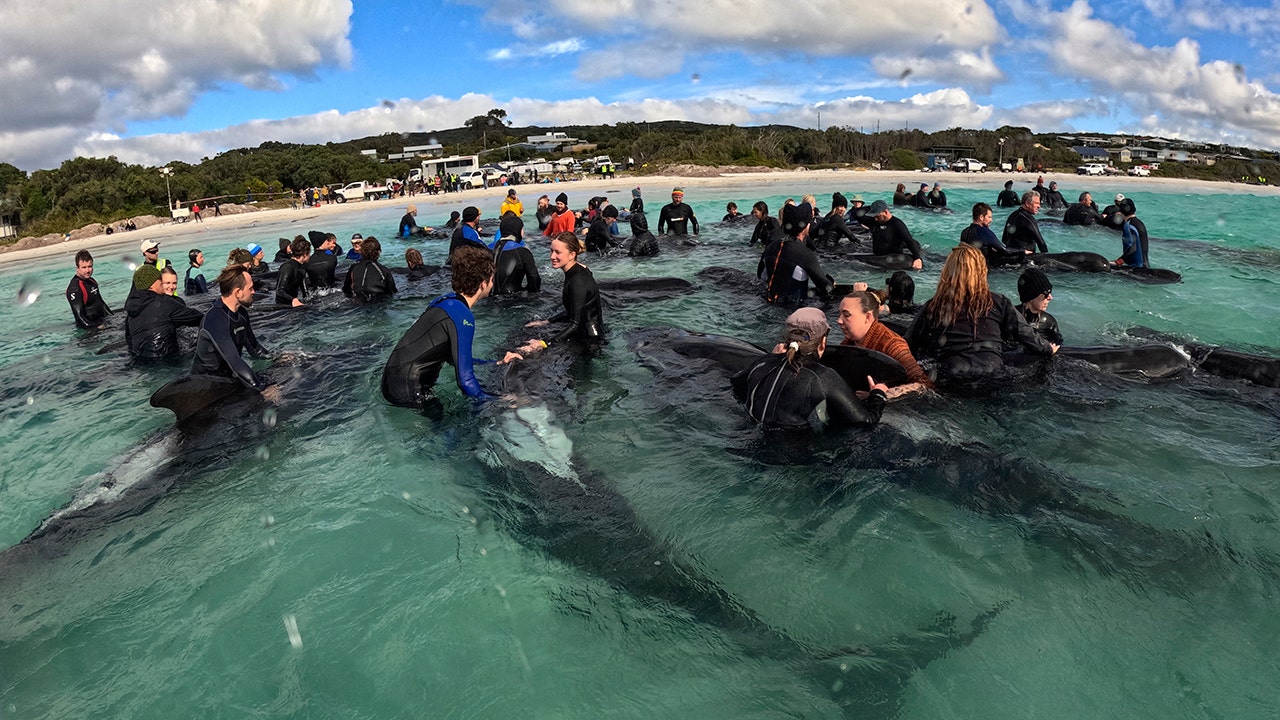
Volunteers continue to work frantically for a second day Wednesday to clear an Australian beach that is covered in whales after nearly 100 long-finned pilot whales stranded themselves on the sand.
More than 50 of the whales have already died after they washed ashore Tuesday morning near Cheynes Beach, east of the city of Albany on the southern tip of Western Australia. Volunteers composed of Perth Zoo veterinarians and marine fauna experts continue to rescue the dozens that remain alive.
Environmental experts are not sure why the phenomenon occurs, despite hundreds of whales beaching themselves just last year.
The current beached pod of whales was first spotted Tuesday morning swimming off the coast of Albany. As the day progressed, the pod moved closer to the beach, sparking concern of conservation officers. By 4 p.m., the pod covered the shoreline.
MYSTERY OVER WHALE DEATHS SPARKS ALARM: WE NEED TO ‘PAUSE AND INVESTIGATE’

In this photo provided by the Department of Biodiversity, Conservation and Attractions, rescuers tend to a long-finned pilot whales, Wednesday, July 26, 2023, after nearly 100 whales beached themselves at Cheynes Beach east of Albany, Australia. (DBCA via AP)
Fifty-two whales have perished, and volunteers are trying to save the still surviving 45, according to Reece Whitby, Western Australia’s environment minister.
“What we’re seeing is utterly heartbreaking and distressing,” he told reporters. “It’s just a terrible, terrible tragedy to see these dead pilot whales on the beach.”
Whitby added, “People are committed to doing what they can to save as many whales as they can.”
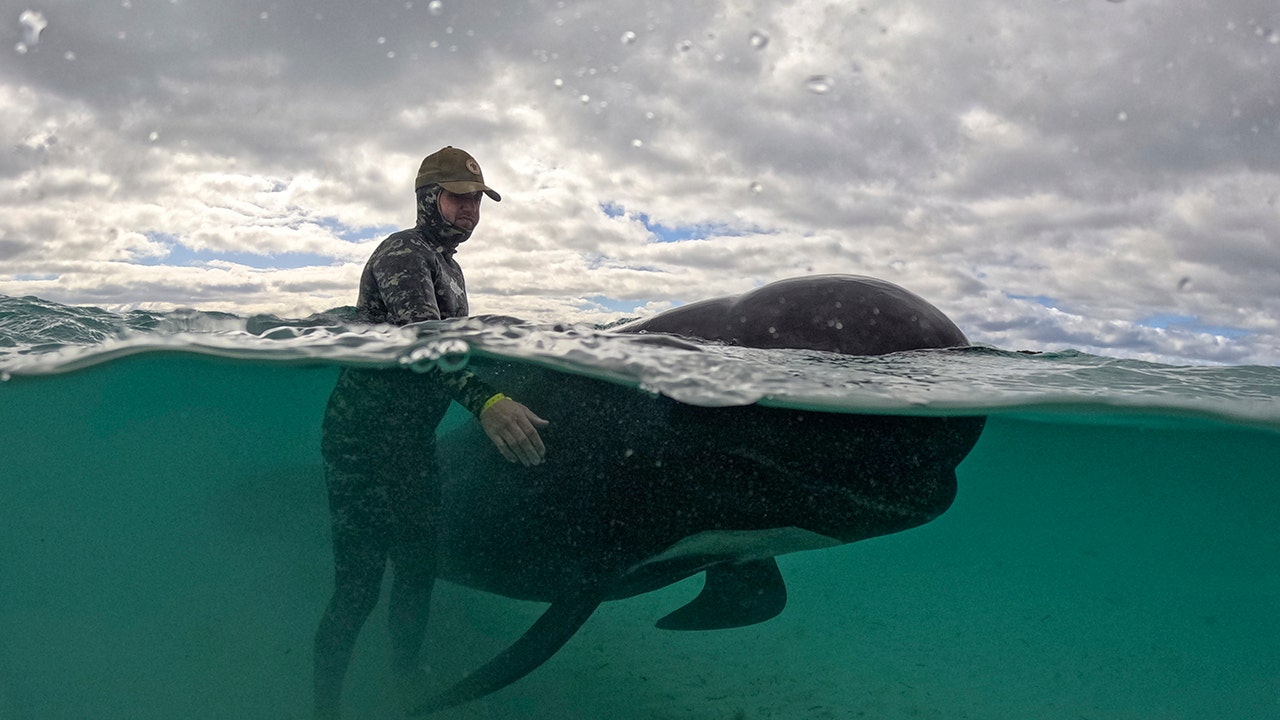
Volunteers worked frantically on a second day to save dozens of pilot whales that have stranded themselves, but more than 50 have already died. (DBCA via AP)
Western Australia state’s Department of Biodiversity, Conservation and Attractions is monitoring the whales.
Peter Hartley, a manager from the department, told the Australian Broadcasting Corp. the volunteers are attempting to get the surviving whales back into the water.
“We are optimistic that we will save as many as we can,” Hartley told ABC, explaining the volunteers are using specialized equipment, including vessels and slings.
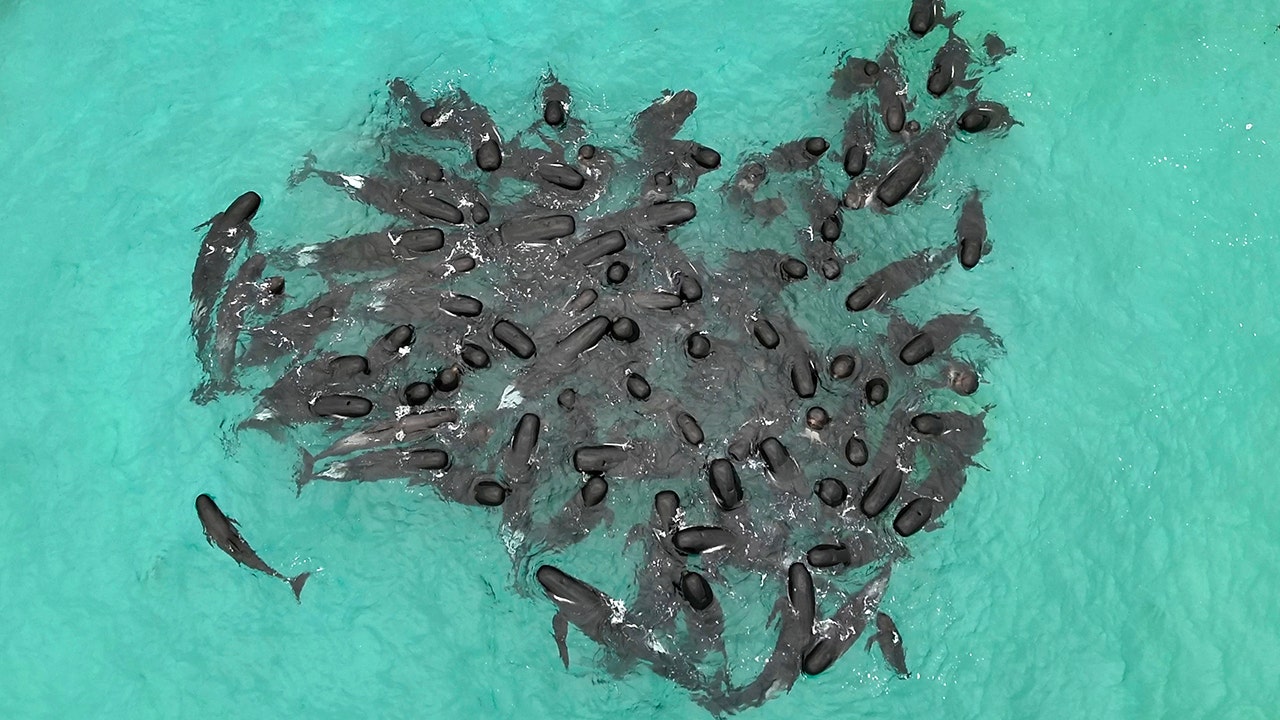
Nearly 100 pilot whales formed a heart shape before stranding themselves on the beach in Western Australia Tuesday, July 25, 2023. (DBCA via AP)
Pilot whales are highly social animals who often maintain close relationships with their pods, so even after getting the whales back into the water, volunteers still have to encourage the worried whales to swim away.
Hundreds of volunteers are assisting in the rescue effort — so many that officials said they had enough help and urged other members of the public to stay away from the beach.
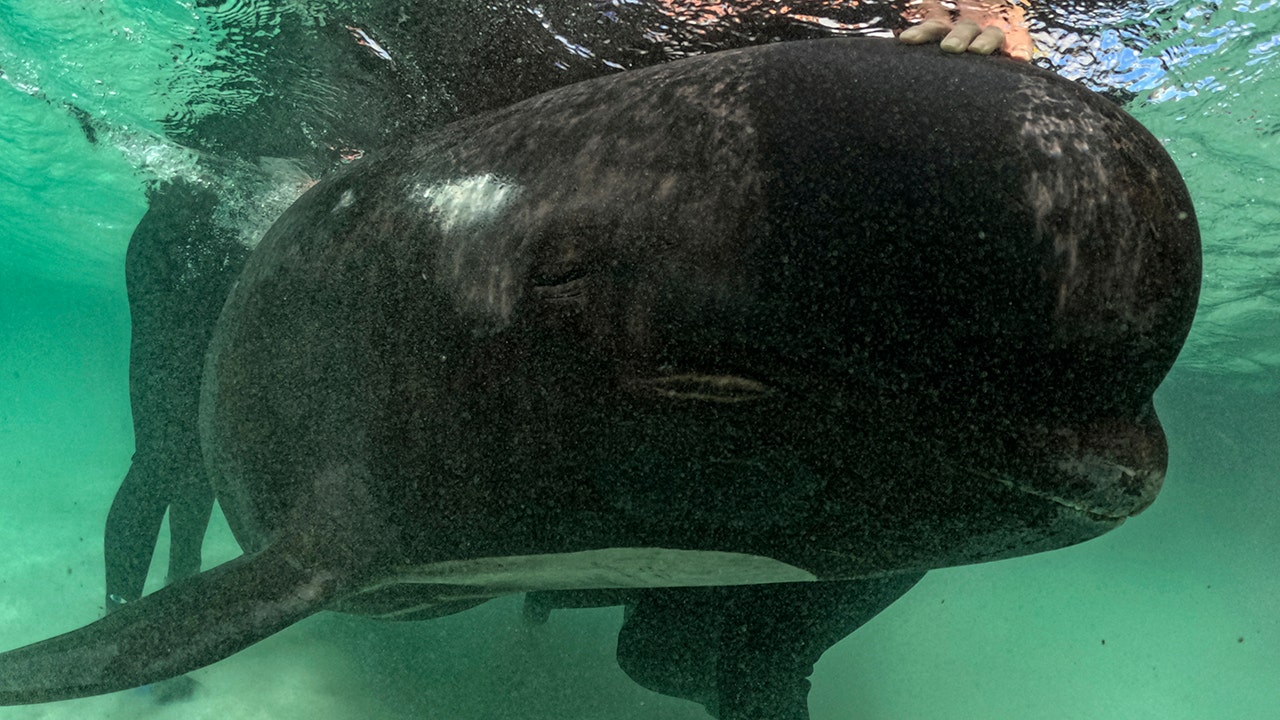
Nearly 100 whales beached themselves at Cheynes Beach east of Albany, Australia, the latest in a bizarre phenomenon. (DBCA via AP)
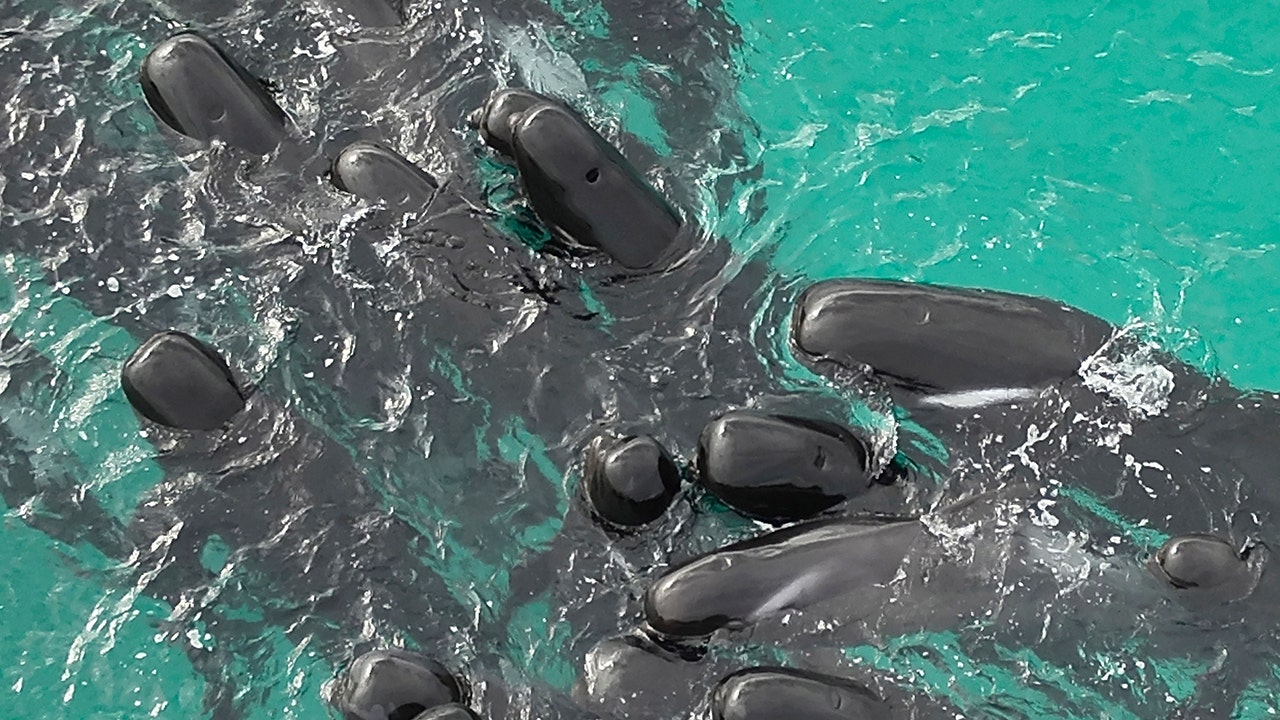
Hundreds of volunteers are attempting to rescue the more than 40 whales that are remaining. (DBCA via AP)
“This is just an amazing event,” Joanne Marsh, the owner the Cheynes Beach Caravan Park told ABC. “We’ve never seen anything quite like this.”
Wildlife experts said the unusual behavior of the whales could be an indicator of stress or illness within the pod.
UPTICK IN DEAD WHALES ALONG EAST COAST SPARKS INTENSE DEBATE AMONG ENVIRONMENTALISTS OVER OFFSHORE WIND
Macquarie University wildlife scientist Vanessa Pirotta said drone footage of the whales swimming could suggest they had become disoriented. She clarified there is no official reason for the mass strandings.
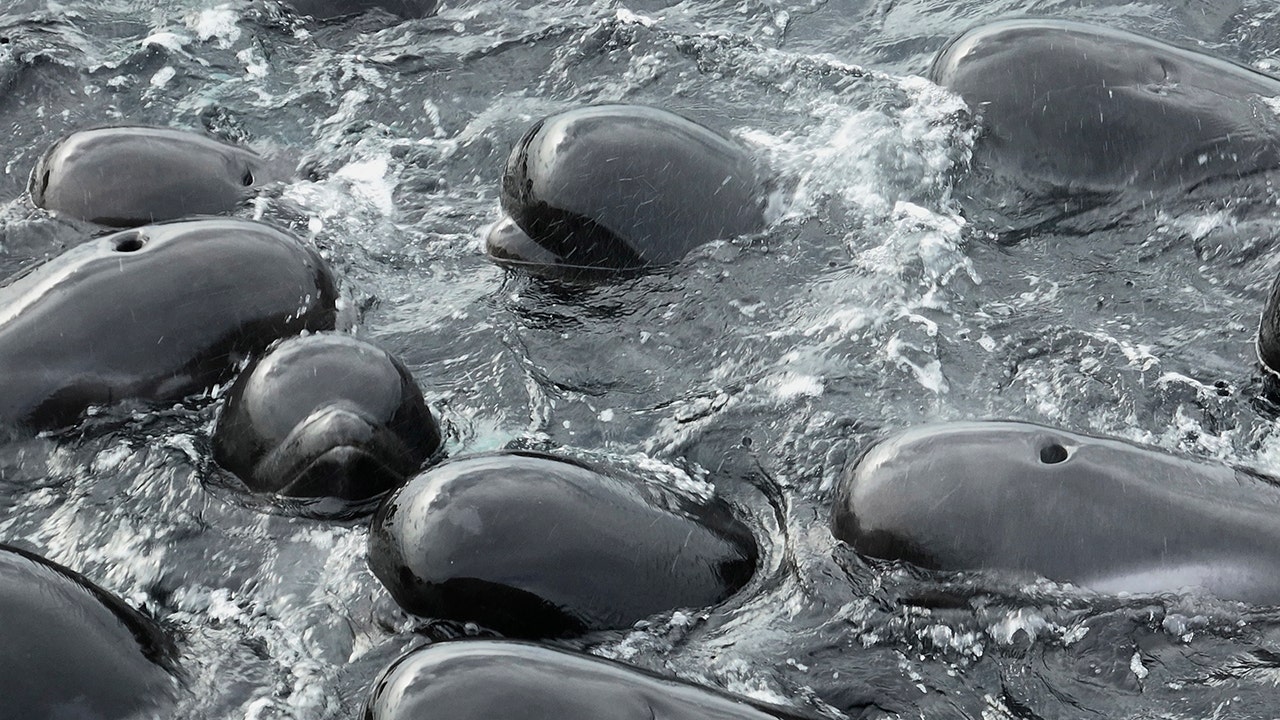
Environmental experts are not sure why the phenomenon occurs, despite hundreds of whales beaching themselves just last year. (DBCA via AP)
“The fact that they were in one area very huddled, and doing really interesting behaviors, and looking around at times, suggests that something else is going on that we just don’t know,” she explained.
She said it was unlikely the whales were trying to avoid a predator.
“They often have a follow-the-leader type mentality, and that can very much be one of the reasons why we see stranding of not just one but many,” Pirotta added.
In September 2022, some 200 pilot whales died after a pod stranded itself on the Australian state of Tasmania, an island located off Australia’s southeastern coast.
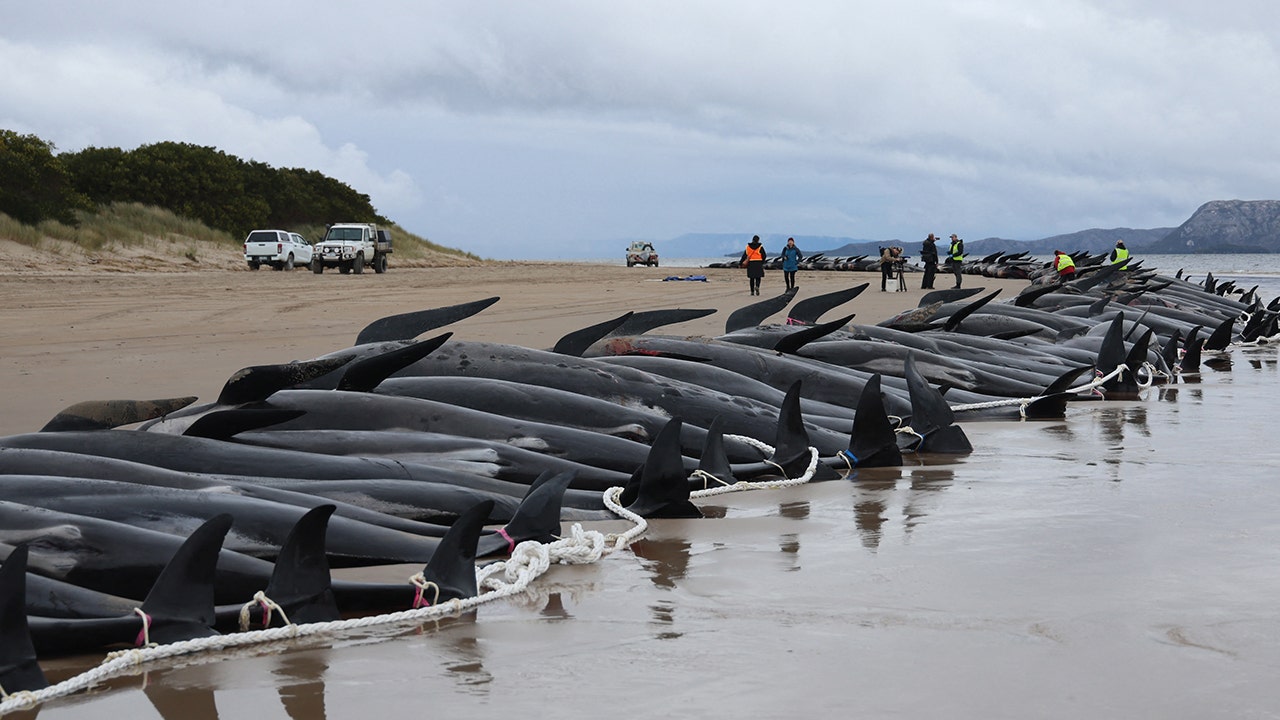
Tasmania state wildlife services personnel check the carcasses of pilot whales, numbering nearly 200, after they were found beached the previous day on Macquarie Heads on the west coast of Tasmania on Sept. 23, 2022. (GLENN NICHOLLS/AFP via Getty Images)
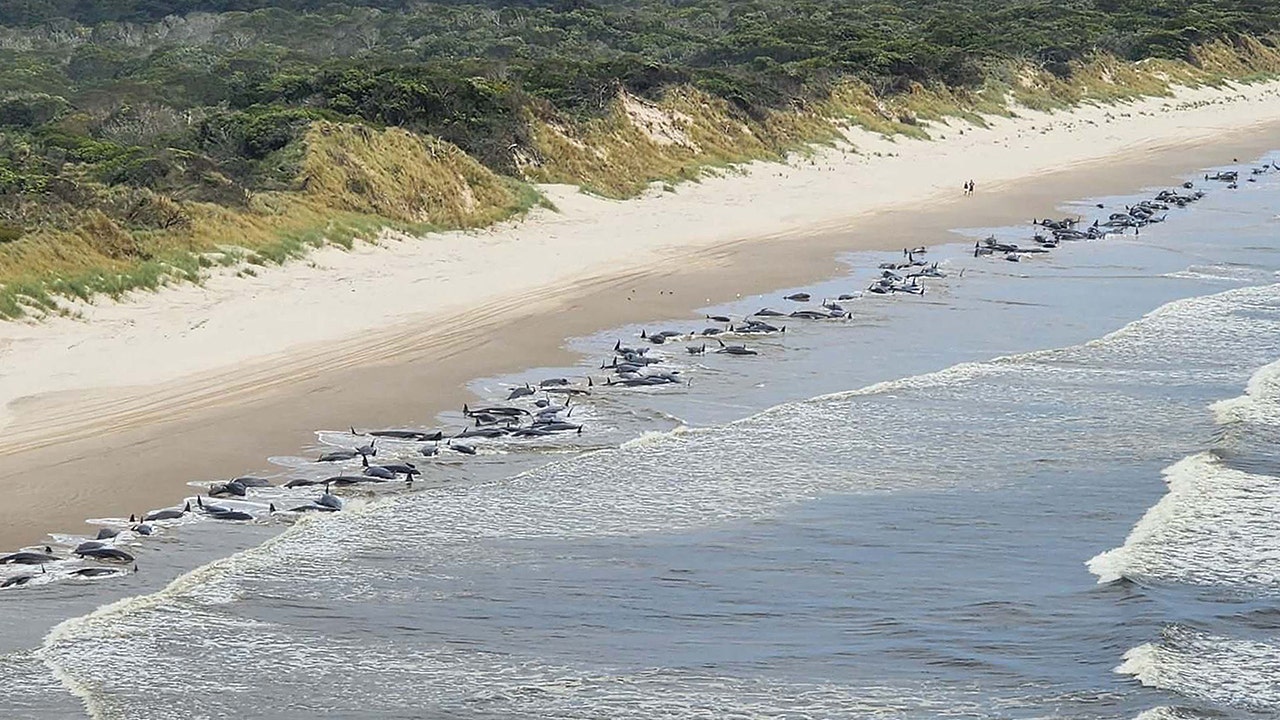
This handout image supplied by NRE Tas shows an aerial view of a mass whale stranding near Macquarie Heads on Sept. 21, 2022 in Strahan, Australia. Hundreds of pilot whales have become stranded at Macquarie Harbour on Tasmania’s west coast in a mass stranding event. (NRE Tas via Getty Images)
CLICK HERE TO GET THE FOX NEWS APP
The following month, nearly 500 pilot whales died after stranding themselves in New Zealand.
The Associated Press contributed to this report.




